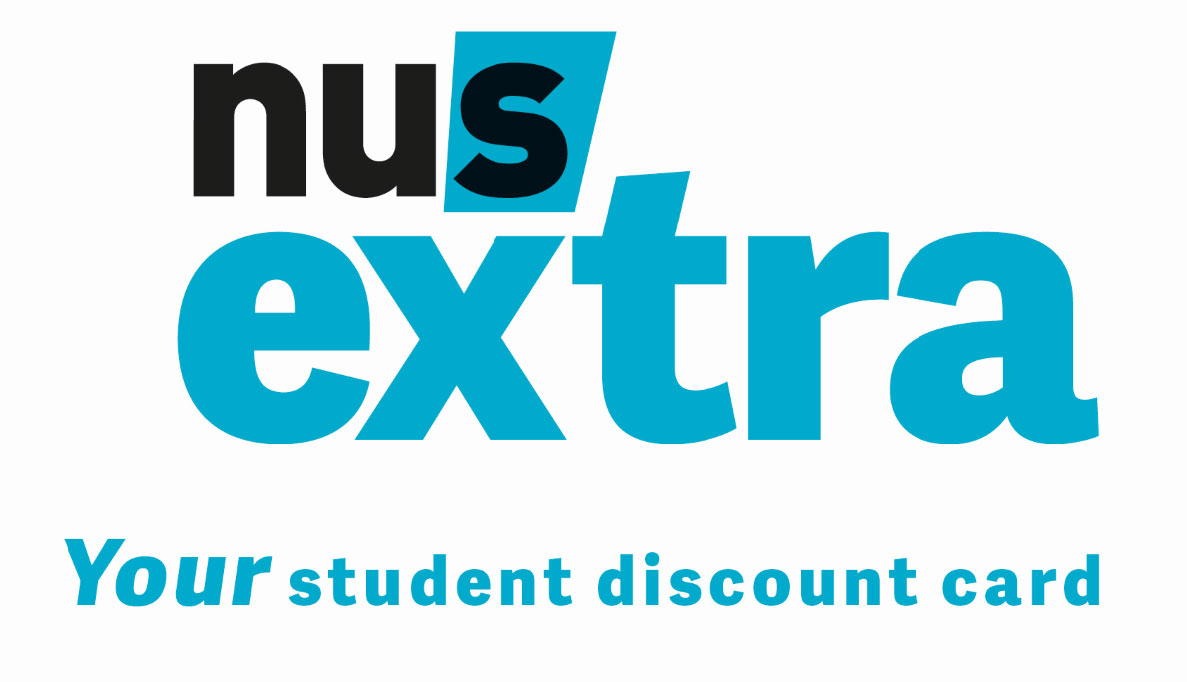Overview
If you wish to study society and the world we live in at university, but don’t have the qualifications to meet the entry requirements, Access to Higher Education Diploma (Social Science and Humanities) will provide you with the opportunity to get back into education, change direction and achieve your aspirations.
Access to Higher Education Diplomas are designed for learners who have been out of education for an extended period of time that wish to return to study. They have been created as alternatives to traditional qualifications (e.g. A-levels) and equip students with the knowledge and skills to tackle a university study programme with confidence. Completing an Access to HE Diploma is a long-established and accepted route to university and the majority of UK universities welcome applications from students working towards, or holding, this qualification. It is important to check the entry requirements of the universities you wish to apply to, however, as all university admission criteria differ.
Not only could Access to Higher Education Diploma (Social Science and Humanities) be your ticket to university, but it will also prepare you for study at a higher academic level. Modules on academic writing skills and independent research will teach you to organise your time, write with relevance and summarise for academic purposes, whilst social science and humanity-based units will provide you with the entry knowledge you need to excel on any humanities or social science degree programme.
Upon successful completion of this course, you will have an excellent grounding in a breadth of subjects, from politics, psychology and sociology to history. As a result, you will be able to apply for a number of undergraduate degree programmes. Access to Higher Education Diploma (Social Science and Humanities) is the first step in your journey towards higher education and, potentially, a successful career within the humanities or social sciences.
Why study an Access to Higher Education Diploma with Highbury College?
Once you have enrolled onto your Access to Higher Education Diploma (Social Science and Humanities), you will be given 24/7 online access to interactive and easy-to-follow materials that cover a range of topics, including: political ideologies and parties, social change in Britain (1914 -1939), cognitive psychology and the origins of the welfare state. As part of your study programme, you will also receive support and guidance on your university application so that you can get the most from your diploma.
As this is a distance learning course, our Access to Higher Education Diploma (Social Science and Humanities) is flexible and allows you to study at the pace that suits you. So, don’t worry if you have work commitments or other responsibilities that take up your time. Our Access to Higher Education Diplomas have been designed with you and your busy schedule in mind.
Nervous about taking this step towards your future? You needn’t be. You will have a dedicated personal tutor who will be available to contact for assistance. You will be supported every step of the way.
The amount of time required to complete this course is approximately 600 hours and you’re free to do this in as little as 6 months or over 18 months if you require extra time.
If you’re worried about funding this course, you may be eligible for an Advanced Learner Loan. The minimum loan you can get is £300 and you won’t need to pay anything back until you’re earning at least £25,000 per annum. If you go on to complete an undergraduate degree following your Access to Higher Education Diploma, you won’t have to pay the loan back at all.
Modules for this course
Module 1: Preparing to study
On completion of this unit you will:
- Understand how study is organised and planned
- Understand how to apply theories of learning in relation to personal approaches to learning
- Understand a range of constraints upon study
- Understand the importance of assessment feedback
Module 2: Academic writing skills
On completion of this unit you will:
- Be able to write with relevance in responding to an academic task
- Know how to interpret and discuss concepts and debates in responding to a set, academic writing task
- Be able to summarise for academic purposes, selecting key points, information or central ideas
- Understand the role of reference, allusion and paraphrase to avoid plagiarism
Module 3: Preparing a written assignment
On completion of this unit you will:
- Understand how to use key information sources
- Understand why sources are acknowledged and referenced
- Understand a range of reading strategies
- Understand note-making methods
- Understand how to plan draft and produce a written assignment
Module 4: Independent research
On completion of this unit you will:
- Be able to plan a piece of research on an approved subject area
- Be able to collect research material from different sources
- Be able to use data to substantiate an argument
- Be able to record sources of information
- Be able to present research findings
Module 5: The origins of the welfare state
On completion of this unit you will:
- Understand what is meant by the term social welfare
- Know the purpose of the 1834 Poor Law Amendment Act and its effects on society
- Explain and discuss early twentieth century Liberal Reforms and their effect on society
- Recognise the significance of the Beveridge Report
- Recognise the social problems which the Welfare State attempted to address
Module 6: Progressing to Higher Education
On completion of this unit you will:
- Understand potential next steps in education
- Understand key sources of information relevant to HE application
- Understand personal HE opportunities
- Understand the financial implications of further study
- Know how to apply for a course
Module 7: Political parties
On completion of this unit you will:
- Understand the role of political parties in the British Political System
- Understand the difference between a single party, dominant party, two-party and multi-party system
- Understand the development, policies and structure of the Labour Party
- Understand the development, policies and structure of the Conservative Party
- Understand the development, policies and structure of the Liberal Democrats and the Minor Parties
Module 8: Prime ministers, ministers & civil servants
On completion of this unit you will:
- Understand what is meant by ‘Cabinet Government’
- Understand the extent to which Britain has moved to a system of ‘Prime Ministerial Government’
- Understand the roles and responsibilities of Ministers
- Understand the role of Civil Servants and their channels of influence
- Understand how the position of the Civil Service has changed over the past 20 years
Module 9: Britain & Europe
On completion of this unit you will:
- Understand why the EEC was established and why Britain’s attitude towards it changed
- Understand the development of the political parties’ views on Europe
- Understand how the structures of the EU work
- Understand the impact of EU membership on British politics and the future prospects for the EU
Module 10: Introduction to psychology
On completion of this unit you will:
- Understand the importance of research in psychology
- Understand the main approaches in psychology
- Understand ethical issues in psychological research
Module 11: The brain & nervous system
On completion of this unit you will:
- Understand the major sub divisions of the nervous system
- Understand the structure and function of glial cells and neurons
Module 12: Introduction to cognitive psychology
On completion of this unit you will:
- Understand research in an area of cognitive psychology
- Understand how the findings of research into cognitive processes can be applied to real-life issues.
Module 13: Introduction to sociology
On completion of this unit you will:
- Understand the sociological approach and its distinction from common sense and other social sciences
- Understand basic concepts in sociological explanation
- Understand contrasting sociological perspectives
- Understand concepts and perspectives relating to a specific social institution
Module 14: Sociology of education
On completion of this unit you will:
- Understand the importance of education as a socialising agency
- Understand the roles of education in contemporary society
- Understand the sociological explanations of labelling and the use of stereotypes
- Understand the concept of meritocracy
Module 15: Understanding crime & deviance
On completion of this unit you will:
- Understand explanations of crime and deviance
- Know theories of crime and deviance
- Understand perceptions of crime and deviance
Module 16: Industrial change in Britain 1700-1850
On completion of this unit you will:
- Understand the pattern of industry and urban society c1700-1760
- Understand the causes and nature of industrial change in Britain c1760-1850
- Understand the impact of industrial change on British social, economic and political life by 1850
Module 17: Imperialism in the late 19th century
On completion of this unit you will:
- Understand the importance of economics in late 19th century imperialism
- Understand the Political importance of late 19th century imperialism
- Understand the effect of late 19th century imperialism on the continent of Africa
Module 18: Introduction to political ideologies
On completion of this unit you will:
- Understand what is meant by a political ideology
- Understand the functions of political ideologies
- Understand the different types of political ideologies
- Understand the value of political ideologies
Module 19: Social change in Britain 1914-1939
On completion of this unit you will:
- Understand the impact of World War 1 on British society
- Understand the social consequences of unemployment during the period 1918 – 1939
- Understand the nature and consequences of housing and health problems during the
- period 1918 – 1939
- Understand developments in family life, leisure opportunities and living standards
Module 20: Public health during the 18th & 19th centuries
On completion of this unit you will:
- Understand the nature of urban development and public health during the 18th Century
- Understand the causes and effects of public health problems in the 19th Century
- Understand the nature and impact of attempts to address public health problems in the 19th Century
Requirements
To start an Access to Higher Education Diploma you will need an English and maths GCSE at grade A - C/ 4 - 9 or a Functional Skills Level 2 qualification in both subjects.
Access to Higher Education Diplomas fulfil the entry criteria for range of different university courses and are suitable for the UCAS application process. However, it is advantageous to check the requirements of each establishment that you want to apply to before submitting your application in order to avoid disappointment. Admission criteria may include, but is not limited to:
- Having a set number of credits attained at Merit or Distinction level
- Attendance and success at a face-to-face interview at chosen university
- Passing the university’s proprietary literacy and numeracy assessments
- Successful completion of mandatory work placements or work experience
Learners must also undertake their own independent research to ensure that their diploma is properly specified, which will give them the best possible chance of getting into university. The student is responsible for their own research and they should begin this as soon as possible after starting the course. Highbury College will not accept any responsibility or liability if any Access to Higher Education Diploma student fails to secure an offer from a Higher Education institution.
Assessment
Access to Higher Education Diploma (Social Science and Humanities) is modular and composed of graded and ungraded units that allow you to quickly and easily absorb the course material in bitesize chunks. At the end of each unit you will complete an assignment which your tutor will evaluate and give you feedback on. The feedback is aimed to show you how effective your piece of work is, its quality, and how you can improve in the future. These assignments are important to your learning process as they are signposts of your progress throughout the course.
In order to achieve this qualification, you will need to attain a total of 60 learning credits. 45 of these will be taken from graded units for the subjects with academic content, whilst the other 15 units are ungraded units relating to study skills.
In order to gain your diploma you need to successfully pass all units within the course.
Important notice: Online access is required in order to access your course content and submit your assignments.
AIM Qualifications and Assessment Group Access to Higher Education Diploma (Social Science and Humanities)
Following successful completion of this diploma you will be awarded a QAA recognised Access to HE Diploma at level 3 (QAA ref:40008824). This diploma has been assigned 60 credits.
AIM Qualifications and Assessment Group

AIM Qualifications and Assessment Group is a national Awarding Validating Agency, regulated by the Quality Assurance Agency for Higher Education (QAA) and Qualifications Wales, to develop, maintain and award nationally recognised qualifications.
AIM Qualifications and Assessment Group work proactively with employers, training providers, colleges, universities, schools and voluntary and community organisations to offer vocational credit-based qualifications, Access to Higher Education Diplomas and quality assured Customised Accreditation that enables learners gain employment or to progress into further learning and Higher Education. AIM Qualifications and Assessment Group also Quality Endorse organisations internal training and skills delivery.
Developing your career
Access to Higher Education Diploma (Social Science and Humanities) will make a range of undergraduate degree programmes accessible to you. These may centre around:
- Politics
- Sociology
- Psychology
- History
Depending on which academic route you pursue, a degree in a humanities or social science subject could lead to a career as a:
- Political history archivist
- Foreign service officer
- Psychologist
- Social worker
- Demographer
- Caseworker
- Market researcher
- Research and educational assistant
Whatever your end goal, Access to Higher Education Diploma (Social Science and Humanities) will equip you with the skills and knowledge you need to take your study further and invest in your future.
Course Fees
Price £3,022.00Payment methods
(No repayments until your salary reaches £27,295)
Further Information
Course ref: 40008824
Course starts: Anytime
Notional Learning Hours: 600
Modules: 20
GET YOUR NUS EXTRA CARD


